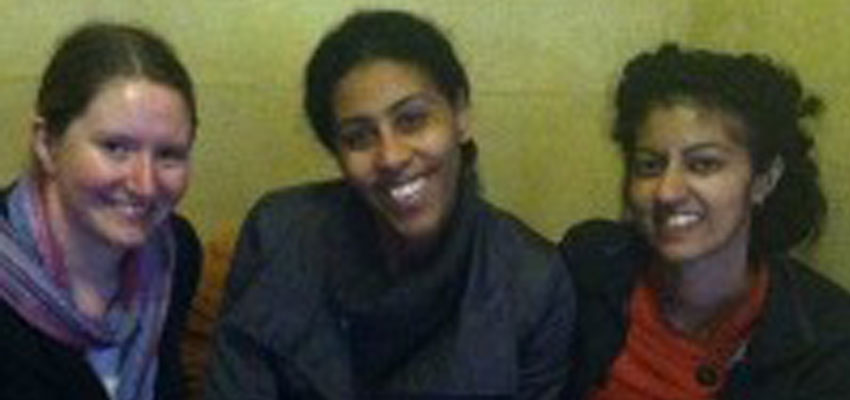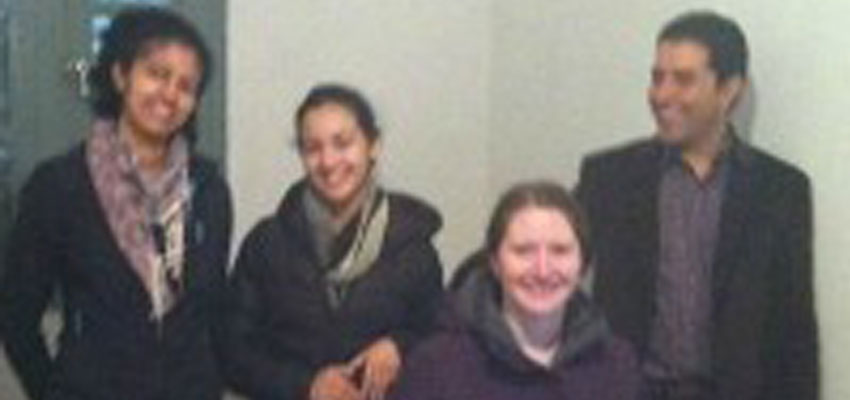
Over the past year, Scale-Ups has been exploring research and development projects with potential for large-scale implementation through collaboration with companies that have a wide reach within developing economies.
Grameen-Jameel Microfinance, whose mission is to help alleviate poverty by providing financial and technical assistance to microfinance institutions in the Middle East, North Africa and Turkey Region, was chosen for the first study under the Scale-Ups research and development arm.
Working with D-Lab’s assessment coordinator, Kendra Leith, Scale-Ups and Grameen-Jameel designed a study to identify the livelihood technologieswith potential for successful deployment in the Moroccan microfinance industry.
In the spring of 2013, Kendra traveled to Morocco with Nadia Elkordy to conduct a needs assessment with the individual clients of two microfinance institutions (MFIs). Grameen-Jameel staff connected the D-Lab team to the MFIs, set up interviews, and in some cases, provided assistance with the interviews as well. Kendra and Nadia also implemented a user feedback survey on a solar water heater piloted by one of these MFIs and interviewed key officials at four different MFIs in order to understand their strategic plans and evaluate their interest in facilitating access to technology products.
The objectives of the needs assessment were as follows:
- Identify opportunities for livelihood improvement within the microfinance customer base with a particular emphasis on areas of technology needs.
- Within the identified areas of technology needs, select the most desirable areas of technologies.
- Evaluate the usability and performance of a solar water heater piloted with MFI clients.
- Evaluate the strategic alignment and identify potential value creation opportunities for the Moroccan microfinance institutions to invest in technology products and services delivery.
To gather this information, the team used a variety of qualitative methods including interviews, focus groups and observations. To identify client needs in urban and rural Rabat, the team interviewed a representative group of 43 clients. They also conducted two focus groups with approximately 10 customers in each group to identify additional needs and technology interests for the urban and rural clients. The team members also interviewed 19 urban clients in Oujda to understand their needs and obtain feedback from five customers on the solar water heater.
In addition, the team members held two focus groups with five loan officers in Oujda to get their feedback on the solar water heater, understand the business and domestic needs of their clients, and identify areas of interest for technology products. Finally, the team conducted four interviews with MFI leaders to understand the needs of their clients and their strategic alignment for the next three years.
The team has processed and analyzed the data and drafted the initial report, which includes a summary of the findings, conclusions and recommendations for next steps. Once the report is complete, the team will distribute the report to Grameen-Jameel.
As Scale-Ups begins work with other corporations and nongovernmental organizations, this first study will provide Scale-Ups with valuable lessons about how best to structure future research and development projects.


